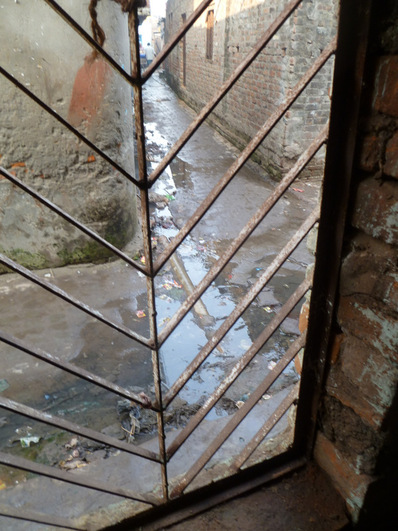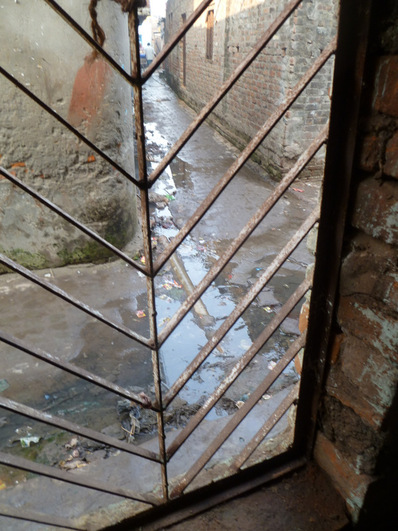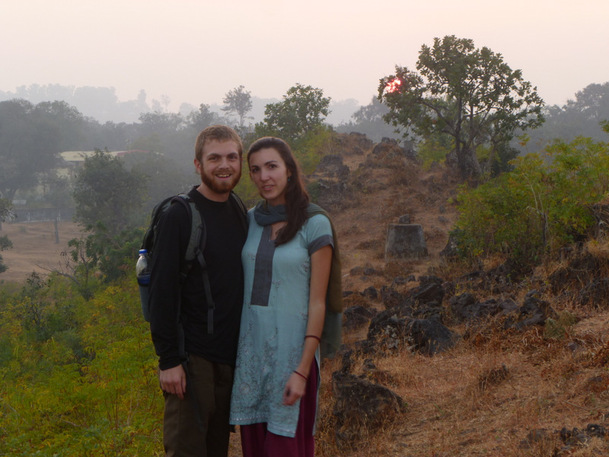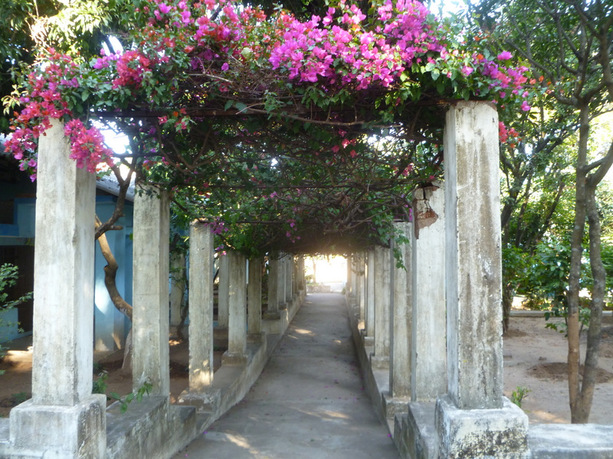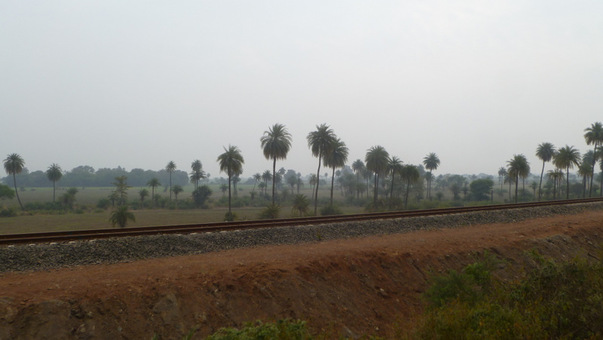
view from the train window, somewhere in Madhya Pradesh
We rang in the new year on a cold railway station platform in the middle of the night, waiting for an 11 pm train which finally arrived at 2 am. An overnight train and an all-day bus ride later, we found ourselves in a small town in the hills of Madhya Pradesh, where we spent the next four days praying, resting, and venturing out into nature to hike. It was a welcome reprieve for our souls: sunny days in the wild under the big blue dome of the sky, instead of the cold, grey days we had been having in the city, with the clouds hanging like a low ceiling over the rising smoke of plastic and wood fires our neighbors were lighting everywhere to keep warm. After experiencing so much of the ugliness and grime of the world, we needed to sit in a garden, surrounded by trees and flowers and birds that reminded us there is beauty in the world. We needed this quiet, peaceful place to pray and think about God and suffering and resurrection and what it all means for us now, living in the world that is groaning for the transformation that is still out of reach. We felt truly rested after our time there.
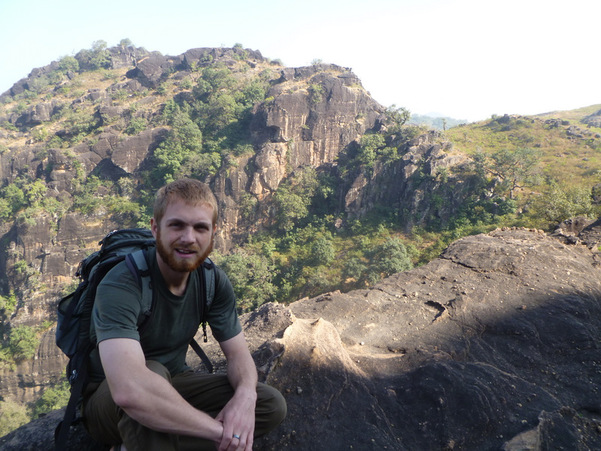
a view from one of our hikes
But on another cold platform at another train station on our way back, we came across a baby lying on the floor, seemingly abandoned. The shop owner who was standing within inches of the infant carrying on his business vaguely told us upon inquiry that the baby belonged to someone vaguely “over there”. We couldn’t see anyone, and after having ascertained that this guy actually had no idea who the parents were or where they had gone, we took the shivering infant into our arms and wondered what to do next. People seemed surprised at this, and other bystanders began to offer bits of information about a “husband and wife problem” and an argument during which the couple had left the baby and gone outside. Apparently lots of people had seen what happened, but no one had felt responsibility for the child lying helplessly on the cold ground while they bought snacks, sold bottled water, or sat waiting for their trains. A moment later, a woman in a sari came hurrying down the platform. “Oh, that’s her,” the shop keeper motioned vaguely. As she approached, we saw that blood was flowing down the side of her head and dripping onto the platform. Too shocked to think of anything to say, I wordlessly handed the baby to the bleeding woman. Too embarrassed to look anyone in the eye, she wordlessly took him and walked back in the same direction from which she had come. “Yes, husband and wife problem,” a man standing near me re-affirmed. “No,” I retorted. “Husband problem.” We were sickened by the collective passivity of everyone throughout the situation, and by the total lack of compassion for either mother or child. Going outside could only have meant that this woman was probably beaten on a crowded street instead of in a crowded train station.
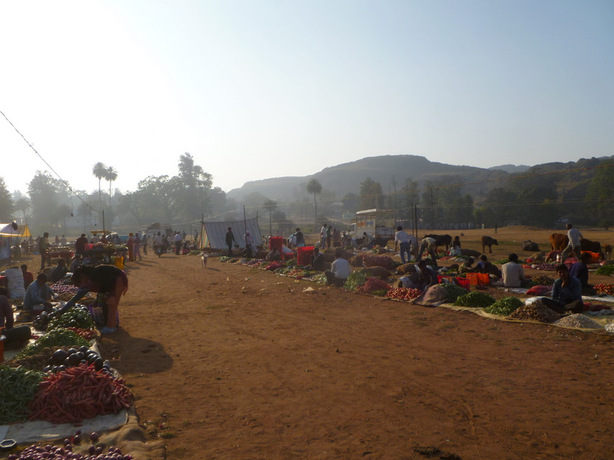
weekly market in town
Back home, we found our community much as we had left it nearly a week before, except much colder. There is beauty here too, in the warm welcome of our neighbors, some of children’s excitement at our return, and the invitation to drink hot chai around an open fire in our friends’ room. But temperatures are dipping into the thirties at night now, and some of the animals (not to mention people) aren’t faring too well. There was a cow on the alleyway behind us who could understand Hindi and tell the future. Well, we never quite figured out whether she truly had some strange ability or whether her handler had somehow trained her how to respond appropriately to pretty much any yes or no question you can think of, but she did seem to know more than the average cow. This week two cows, including that strange creature, have succumbed to the cold. And this whole story would just be a bizarre side note if it weren’t for the fact that two families depended on those cows for their livelihood and will now be scrambling to find work in the midst of a cold season during which much of the community’s other work—furniture making and recycling collection—drastically slows down anyway.
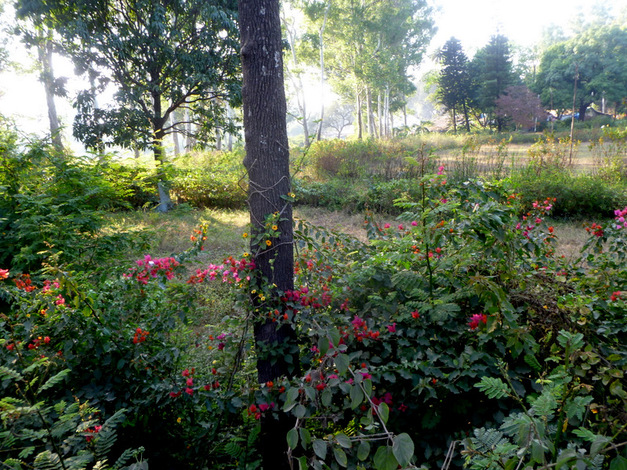
natural beauty was everywhere
Life here is just so full to bursting that within the same day you can find yourself laughing with abandon, hot with rage, struck with curiosity or wonder, and later sad enough to cry (and maybe you do). This week was a little slice of everything, with the confusion, the disappointment, the joy, and the downright strangeness all thrown in together, the way real life always is.
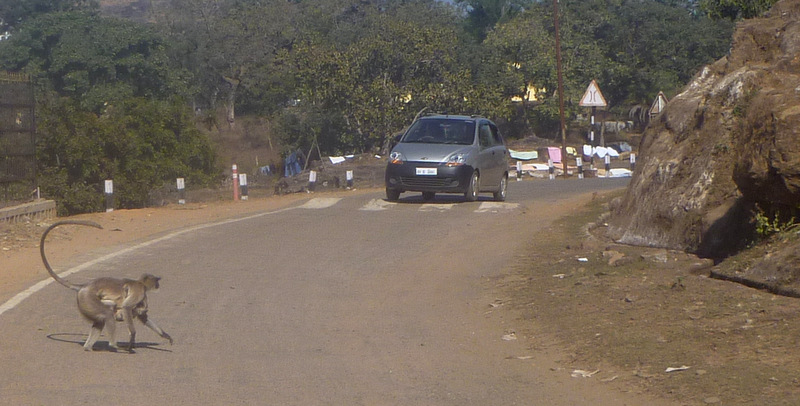
mother monkey crossing the road with baby in tow
